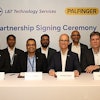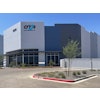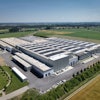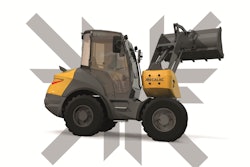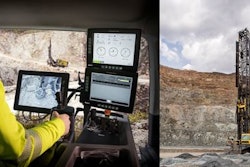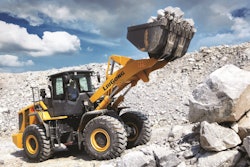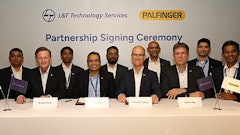About two months before the start of the world's leading trade fair bauma on April 8, 2019, Messe München is presenting exclusive study results for the construction machinery sector. Important findings of the “bauma Industry Barometer”: The mood for investments worldwide is predominantly positive, the lack of skilled workers is the number one challenge, the megatrend of digitization determines the future—but is still in its infancy. Messe München leader Dittrich: Make use of digital solutions for competitive advantage.
The willingness to invest in the construction machinery industry is on a very high level globally and continues to be regarded cautiously optimistic in the coming years. This is one of the findings of the “bauma Industry Barometer”, a representative study which polled approximately 10,000 industry experts over a period of two months. Forty-four percent of the respondents are planning to increase the investment volume for their company in the future. In a regional/country comparison, Africa (68%) and Asia (67%), in particular, are optimistic about the investment trend. The figure for Europe is at 42%. At 39%, Germany is a little more skeptical.
“During the bauma year 2019, the industry is doing brilliantly. The majority of the respondents assume that investments will remain at a high level. This illustrates the extraordinarily positive mood with regard to the economic development of the construction machinery industry. But it also shows that an above-average willingness to invest is necessary in order to remain competitive in the long term,” says Klaus Dittrich, Chairman and CEO of Messe München, assessing the investment-keen climate.  Klaus Dittrich, Chairman and CEO of Messe Munchen, the organizers of bauma.Messe Munchen
Klaus Dittrich, Chairman and CEO of Messe Munchen, the organizers of bauma.Messe Munchen
Big challenge: The shortage of skilled workers
More than half of the respondents (58%) regard the shortage of skilled workers as the greatest challenge for the industry. This is a major problem, especially for the traditional industrialized countries, but less so for populous countries such as China and India. Other key challenges include the increasing competitive and price pressure (31%), tighter environmental laws and regulations (24%) and the digitization of business processes (19%).
Important fields of research: Electromobility and digitization
Digitization is also increasingly finding its way into the construction machinery industry, but it is still in its infancy: Only 4% see themselves as leaders in terms of digitization. More than half of the respondents have already digitized parts of their companies (28%) or at least started to do so (25%). However, 22% are still waiting to see what happens, 20% see no need for action at all. However, in addition to electromobility, the industry's most important fields of research are digital topics—from digital networking within and outside production to BIM to the Internet of Things.
Digital solutions at bauma 2019
Visitors of bauma 2019 are going to see: Already today, construction machines can be equipped with a wide range of sensors and communication interfaces. The collected data can be used, for example, to monitor work performance, consumption and location, define predictive maintenance intervals or determine operating costs. Entire vehicle fleets can be managed by telematics. Moreover, digital tools help to automate workflows, which is becoming increasingly relevant, not least because of the shortage of skilled workers.
Dare to drive more digitization!
“Many companies in the construction industry have already recognized the relevance of digitization, but are still investing with caution. From a trade fair point of view, my appeal is: Dare to drive more digitization! In order to remain fit for the future, we must permanently incorporate digital processes and systems in our events and organization. I don't think that is any different for the companies in the construction machinery industry,” says Dittrich.
At bauma 2019, the digital construction site and construction machines will be brought to life with the help of virtual and augmented reality. TrustedTargeting also offers exhibitors the opportunity to address their target audience online already before the trade fair in order to reach potential new customers and invite them to their exhibition stand.
